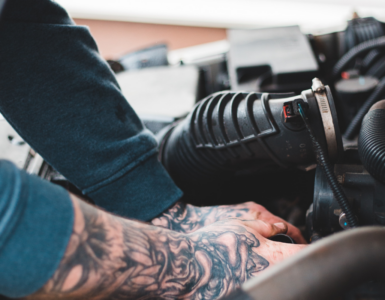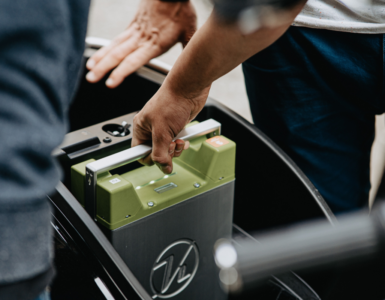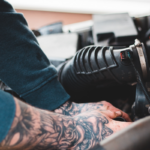We all rely on our cars to take us where we need to go. But what happens when the car starts to overheat? Car overheating is a common problem, so you’re not alone if your car has been overheating. Here, we’ll discuss some causes of car overheating and some tips to prevent it so you can stay safe on the road.
Why Does Car Overheats?
There are many reasons a car overheats. Here are a few of them.
Water Pump
A water pump is essential to a car’s cooling system and plays a crucial role in preventing your engine from overheating. If your water pump fails, it can cause your car to overheat, leading to serious engine damage. There are a few different reasons a water pump may fail, but one of the most common is a loss of power. For example, if your car’s battery dies or if the alternator fails, the water pump will no longer be able to operate, and this can cause your engine to overheat. If you think that your water pump may be failing, it is crucial to have it checked by a mechanic.
Bad Thermostat
A car overheating can be a sign of a bad thermostat. The thermostat is responsible for regulating the car engine’s coolant flow; if it becomes faulty, it can cause the engine to overheat. A faulty thermostat can lead to serious engine damage if not fixed, so don’t delay getting your car serviced if you think there may be an issue.
Low Oil
If your car’s oil level is low, there isn’t enough lubrication for the engine. This can cause the car engine to run hotter than normal, eventually overheating. Low oil levels can be caused by several things, including leaks, burning oil, or simply not adding enough oil when performing routine maintenance. If you think that low oil levels might be causing your car to overheat, try to check the dipstick. If the oil el is low, try to add more until it reaches its full mark.
Radiator Problem
Radiator problem is another common reason why cars overheat. Radiators are responsible for cooling the engine; if they aren’t functioning correctly, the engine can quickly become too hot. If you’re having trouble with your radiator, it’s essential to take your car to a mechanic to avoid further damage to the engine.
Cooling System Failure
A car’s cooling system helps control the engine temperature and prevents it from getting too hot. If the cooling system fails, the car engine will start to overheat, eventually leading to engine damage. There are several reasons why a car cooling system might fail, such as a radiator leak, a water pump failure, or a thermostat malfunction. Sometimes, simply adding more coolant to the system can solve the problem. However, if the damage is severe, it may need to be repaired by a mechanic.
Whatever the cause, it is crucial to have the problem fixed as soon as possible, as overheating can damage your car engine.
What To Do When Your Car Engine Overheats?
 If your engine overheats, you should first pull over to the side of the road. Once you’re safely off the road, please turn off your engine and let it cool down for a few minutes. You may notice steam under the hood – this is normal. Then, open the hood to let the heat escape.
If your engine overheats, you should first pull over to the side of the road. Once you’re safely off the road, please turn off your engine and let it cool down for a few minutes. You may notice steam under the hood – this is normal. Then, open the hood to let the heat escape.
Once the engine has cooled, check the fluid level in the radiator. If it’s low, add coolant until it reaches the full line. You should also check for any leaks in the radiator hose. If everything looks okay, start the engine and turn on the heater. This will help to dissipate any remaining heat. If your car continues to overheat, call a tow truck and take it to a mechanic for diagnosis and repairs.
How To Prevent Your Car From Overheating?
If your car overheats, it can be a frustrating and even dangerous experience. Fortunately, you can do a few things to help prevent your vehicle from overheating.
- Make sure you always keep your coolant levels topped off. Coolant helps regulate your engine’s temperature, and if it gets low, it is more likely that your car will overheat.
- Avoid running too many electronics in your car at once. Things like heater, air conditioner, and radio can strain your engine, causing it to overheat.
- Get your car serviced regularly. This will help ensure that all the car parts are functioning correctly and that there are no issues that could cause your vehicle to overheat.
In Conclusion
Car overheating can be a serious problem. However, by understanding the causes of car overheating and taking preventative measures, you can help keep your car running smoothly and avoid a major headache.











